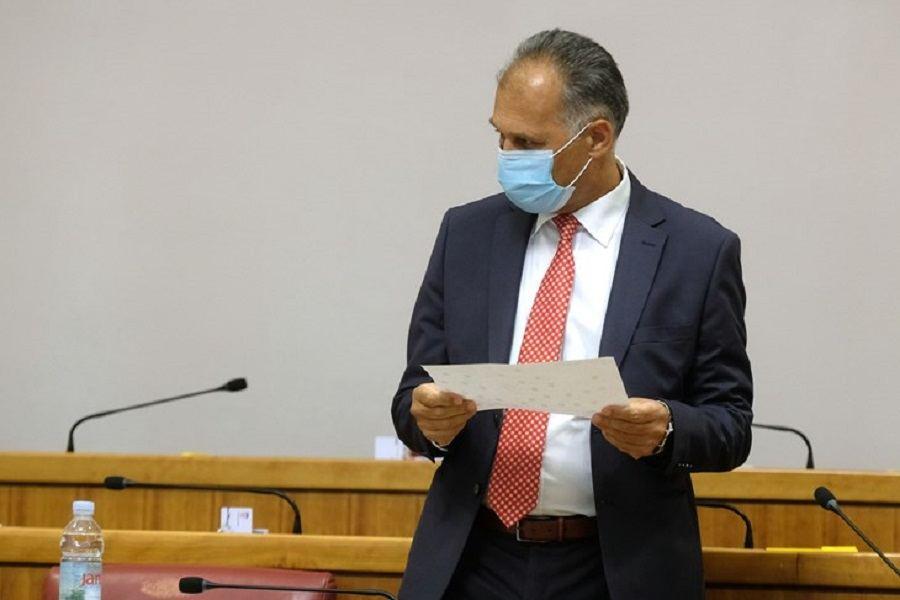Member of Croatia-Azerbaijan Inter-parliamentary working group expresses sorrow over deaths due to Armenian provocations

By Trend
Veljko Kajtazi, a member of the Croatian Parliament expressed his sorrow over deaths of dozens of civilians in recent days due to Armenian provocations, Trend reports with reference to Kajtazi’s statement.
"Azerbaijan's territorial integrity must be respected, the Geneva Convention must not be violated, and attacks on civilians must be stopped immediately," Kajtazi said.
“Following three principles based on sovereignty, territorial integrity and inviolability of state borders stated in the Zagreb Declaration signed with Azerbaijan in 2013 in accordance with the relevant UN Security Council resolutions on the Armenian-Azerbaijani conflict over Nagorno-Karabakh and the OSCE Summit in Lisbon, I would like to put a stress on the paragraph 3, which emphasizes the importance of a peaceful settlement. Guided by the relevant Security Council resolutions 822, 853, 874, and 884, we must respect the principles of sovereignty, territorial integrity, and inviolability of state borders. As a result of the attacks on the cities of Tartar, Dashkasan, Fizuli and Naftalan, many civilians' houses, urban infrastructure, hospitals and administrative buildings were destroyed, and innocent people were killed. The whole family of five was killed in Naftalan. The death of civilians is a gross violation of the Geneva Conventions,” Kajtazi said.
Armenian Armed Forces launched a large-scale military attack on
positions of Azerbaijani army on the front line, using
large-caliber weapons, mortars and artillery on Sept. 27.
Azerbaijan responded with a counter-offensive along the entire
front. As a result of retaliation, Azerbaijani troops liberated a
number of territories previously occupied by Armenia, as well as
take important, strategic heights under control.
Military actions continued on Sept. 29 - Oct. 1. According to a
statement from Azerbaijan's Defense Ministry, the Armenian armed
forces have suffered heavy losses along the entire front line from
Sept. 27 through Sept. 30, including tanks, armored vehicles,
artillery installations, rocket launch systems, as well as command
and observation posts, air defense systems, etc.
The conflict between the two South Caucasus countries began in 1988
when Armenia made territorial claims against Azerbaijan. As a
result of the ensuing war, Armenian armed forces occupied 20
percent of Azerbaijan, including the Nagorno-Karabakh region and
seven surrounding districts.
The 1994 ceasefire agreement was followed by peace negotiations.
Armenia has not yet implemented four UN Security Council
resolutions on the withdrawal of its armed forces from Nagorno
Karabakh and the surrounding districts.
---
Follow us on Twitter @AzerNewsAz
Here we are to serve you with news right now. It does not cost much, but worth your attention.
Choose to support open, independent, quality journalism and subscribe on a monthly basis.
By subscribing to our online newspaper, you can have full digital access to all news, analysis, and much more.
You can also follow AzerNEWS on Twitter @AzerNewsAz or Facebook @AzerNewsNewspaper
Thank you!
